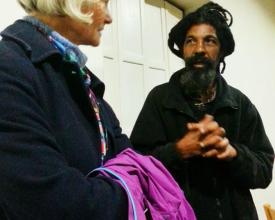Herbanisation
Herbanisation is an open access, medicinal street garden project in Cape Town, South Africa. The project aims to green streetscapes in economically marginalized areas while contributing to the livelihoods of local Rasta/Khoi herbalists and reconnecting community members with medicinal plants. Herbanisation gardens currently include 1,600 plants in Seawinds, Cape Town, and are set to reach 4,500 by mid-2015.
Context
Challenges addressed
Location
Process
Summary of the process
Building Blocks
Work with local champions
Enabling factors
Lesson learned
Use gardens as vehicles
Enabling factors
Lesson learned
Apply open access principles
Enabling factors
Lesson learned
Impacts
1. Herbanisation has already resulted in groundbreaking engagement between Rasta herbalists, conservation bodies and local botanical organisations. In addition, the project is strengthening linkages between park activities and urban conservation efforts, making local nature a key driver of urban renewal efforts. 2. Many Seawinds residents and local traditional healers harvest from the Herbanisation street gardens in order to treat themselves and their families. Not only does this contribute to the health and wellbeing of the local community, it also empowers individuals to take their health into their own hands and to feel proud of their role as indigenous knowledge bearers. 3. The Seawinds garden site is currently home to the Cape Dwarf chameleon (rare), Western Leopard Toad (endangered) and Cape Flats Conebush (critically endangered), demonstrating a clear positive impact for local biodiversity. Herbanisation also contributes to local biocultural resilience.
